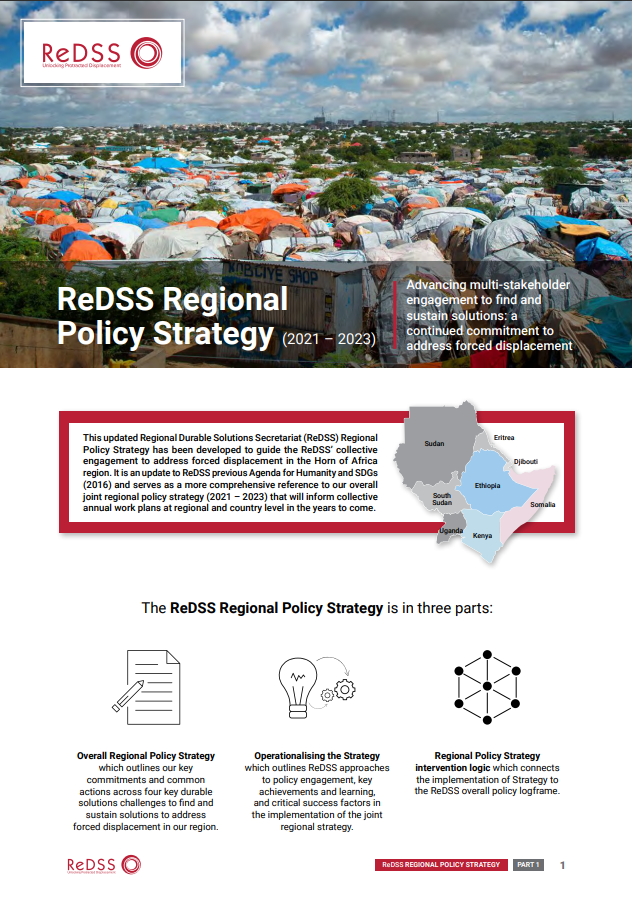Policy Dialogue
The overall objective of the ReDSS policy dialogue pillar is to facilitate and undertake constructive and influential policy dialogue at local, national and regional levels. The secretariat initiates and supports advocacy and policy processes based on evidence to ensure that durable solutions issues are adequately addressed in policies and funding systems – both humanitarian and development structures while connecting national, regional and global levels.
Policy dialogue is one of the four 2021-2023 ReDSS strategic pillars in support of ReDSS’s overall goal of improved durable solutions policies and programming that increases the potential of displacement-affected communities to integrate sustainably and to live safe, dignified and productive lives in East and Horn of Africa.
Regional Policy Strategy
Despite significant progress, learning and good practice at local, national and regional levels, there remain key challenges to advance the durable solutions agenda and support solutions for displacement-affected communities in our region.
ReDSS focuses on using evidence, learning and analysis to influence policy dialogue through engaging in priority policy processes and with key actors. Policy dialogue for ReDSS has internal and external dimensions regarding how ReDSS supports members and engages as a Secretariat. The 2021-2023 regional policy strategy lays out two outcomes.
- Strengthen ReDSS policy reach and impact through serving as a platform for engagement and dialogue informed by evidence and learning
- Provide timely, evidence-based policy advice and analysis that orient policy processes towards solutions to displacement

In 2020, ReDSS in consultation with members, developed an updated Regional Policy Strategy to guide our collective engagement to address forced displacement in the Horn of Africa Region. It serves as a more comprehensive reference to the overall joint 2021-2023 ReDSS Strategy.
The strategy is is three parts:
- The Regional Policy Strategy – Outlines our key recommendations and common actions across four key durable solutions to find and sustain solutions to address forced displacement in our region
- Operationalising the strategy – Outlines ReDSS approaches to policy engagement, key achievements and learning and critical success factors to the implementation of the joint regional strategy
- The regional policy strategy intervention logic – The ReDSS regional policy strategy intervention logic document describes how policy actions will lead to the achievement of ReDSS overall objectives
Policy Engagement in Action
Since 2015 ReDSS and its members have managed to create a space to talk about durable solutions, and initiated and engaged in policy processes and programming solutions. ReDSS has also engaged with development actors and donors contributing to a shift in addressing protracted displacements. ReDSS has acted as a coordination and information hub contributing to improved joint learning and programming for durable solutions. In particular, ReDSS and members have engaged in constructive and influential policy dialogue with key national and regional policy actors and processes at the local, national, regional and global levels.